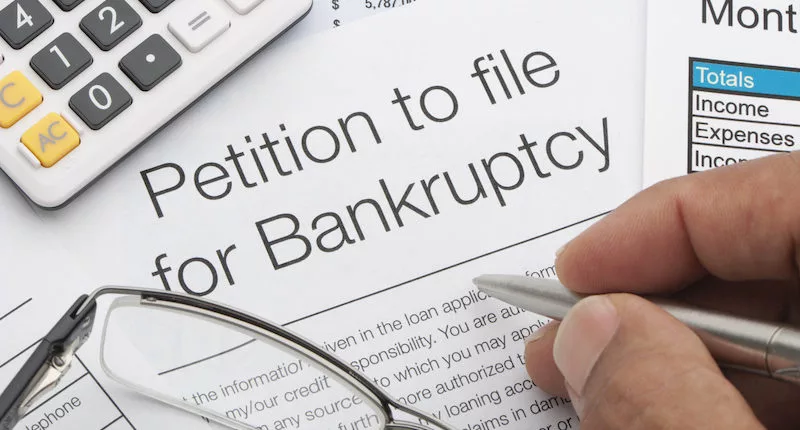An Overview of the Bankruptcy Court Process
There is a lot that goes into the bankruptcy court process. To better understand, here’s a quick overview.
Read now.
Introduction
It is not the goal of most people to move forward with their life plans knowing that one day they will just file bankruptcy to make all their financial woes disappear. While the idea of the resulting freedom from heavy debt may seem worth it – bankruptcy is definitely not something that anyone wants to do.
Filing for bankruptcy is a big process that can seem intrusive and uncomfortable for those who are going forward with it. Most people do not like to talk about their financial situation with others – and many even struggle to talk to their spouses about spending and outstanding financial obligations. This information is often kept private with the hope that they appear as though they are thriving on the outside and not struggling to breathe under a pile of unpaid bills.
The truth is, when things begin to spiral out of control or begin to be too much, many don’t have anywhere to turn but to the relief of bankruptcy.
What Does Bankruptcy Do?
Bankruptcy is a means of helping people who can no longer pay their debts find relief. Generally, it liquidates their assets so that they can pay off their debts in different ways. And once a bankruptcy case is discharged, the debts that were listed within it are wiped out for good.
These cases are handled in federal court so it does not matter what state you live in – the process is the same everywhere. To seek bankruptcy relief, you will file a petition – either alone or with your spouse. Because the process can be very intricate and there are many different routes to take, it is important to seek the expertise of a bankruptcy attorney.
Types of Bankruptcy Cases
You don’t just file for a general bankruptcy, but you have to choose the chapter in the bankruptcy code that will be the best fit for your debts. It will depend on the specifics of each filers situation. For instance, chapter 7 or chapter 13 are the two most common filing types for individuals. Let’s take a closer look at each and how they vary.
A chapter 7 bankruptcy is one that liquidates assets. A list of assets will be included in the bankruptcy petition. Any that are not exempt from creditors will be collected and turned into cash so that creditors can be paid. The creditors are usually only paid a portion of the debt that is owed, based on the amount that can be liquidated.
A chapter 13 bankruptcy is often chosen by those seeking to reorganize their financial affairs under a plan for repayment. Typically designed to last 3 to 5 years, these plans are designed for those with a certain amount of income – and a certain level of debt. Once the repayment plan is complete, the debts are discharged. Keep in mind that this option, too, often only requires paying creditors a percentage of the full balance owed.
It should be noted that regardless of the type of bankruptcy case filed, there are a few different debts that cannot be discharged. These include alimony, child support, tax liens or unpaid taxes, HOA fees, debts that were not subject to bankruptcy, debts that result due to malicious intent, or personal injury cases.
The Bankruptcy Court Process
Alright, let’s get down to business. You know that bankruptcy can offer relief and that there are various different chapters you can file based on your situation. Below you will find a very brief overview of the bankruptcy court process.
Credit Counseling Requirement. The first step in a bankruptcy case is to always determine whether you are eligible to file. Once you meet with your bankruptcy attorney, you will discuss the requirement of the law to complete credit counseling within 180 days of filing. A certificate of completion will be given to you once the course is complete – and this needs to be presented to the court in order for your bankruptcy to move forward.
Determine Your Chapter. By performing a means test, your assets and liabilities will be evaluated to determine whether you can file for chapter 7 bankruptcy protection or whether you will need to file for chapter 13.
Filing Your Petition. When you are ready to proceed, there are many forms that need to be completed and submitted as part of your bankruptcy petition. These need to be accurate and precise so that you are not hiding anything. Plus, you want to make sure that you don’t miss any debt, or else you will still be responsible for it even after the bankruptcy is discharged.
Know Your Trustee. The bankruptcy court will automatically assign a trustee to oversee your case. This individual will review your assets and determine those that can be liquidated as well s those that are exempt. The trustee helps move your case along.
Meeting of Creditors. The very first meeting you will have is called the Meeting of Creditors. You will be under oath and may be asked all sorts of questions regarding your financial situation. Creditors may or may not appear.
Liquidation of Nonexempt Property. Any property you have that can be used to pay off creditors will be liquidated at this time. The trustee may or may not try to seize this property.
Reaffirming Secured Debts. Any debts you have that are secured, such as your car or home, will be reaffirmed. This means you will continue making your payments as normal despite the bankruptcy proceedings or discharge.
Financial Management Course Requirement. You will be required to take a financial management course to learn about handling finances and budgeting so you can avoid bankruptcy in the future. You will have to prove you’ve completed the course.
Discharge of Bankruptcy. Once everything has been cleared up, your debts will be discharged. A notice will be sent out to all creditors letting them know that their debt was discharged in the bankruptcy and you are no longer responsible for paying it.
Final Thought
You can now move forward with a clean slate and a fresh future. Hire an attorney and get started today.
Are you in search for a certified attorney to represent you?
Let us help you find one today!


